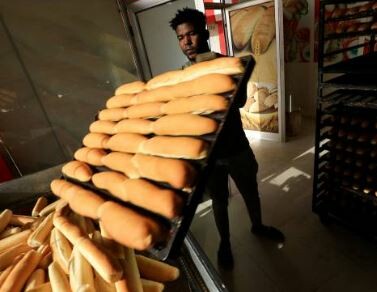The Norwegian Refugee Council (NRC) earlier in the week invited representatives of the Bakeries Union, community initiatives, and local authorities to a workshop to evaluate the 10-day project to subsidize bread in Geneina town in West Darfur State.
For 10 days, NRC committed to bearing the costs of flour while the bakeries covered the operational costs and bread sold at half price. The support was provided to 108 out of a total of 170 bakeries in the town because some closed due to the war.
Attendees at the workshop unanimously agreed that the project was important and successful and that it helped alleviate hunger.
However, a complaint was raised that the project led to hoarding of bread which led to scarcity, and workshop participants recommended stringent monitoring mechanisms and involvement of relevant community members.
Some of the participants blamed unscrupulous bakery owners for being dishonest and producing poor-quality bread and emphasized the need for community oversight at bakeries.
Other contributors pointed out that the project’s design did not consider the community’s dietary culture, as it replaced traditional foods with bread. Additionally, it was noted that low-income groups were unable to afford other food items due to the affordable price of bread. Suggestions were made to diversify funding to include both bread and traditional foods to preserve the community’s dietary needs.
Abu Bakr Adam Yahya, the Director of Emergency Management at the Humanitarian Aid Commission and a member of the monitoring committee, explained that the workshop aimed to evaluate and discuss the trial period of the bread support project for the cities of Geneina, Ardamata, and Umm-Adwin.
“During the trial period and under our supervisory role, the project achieved its objectives which was to provide the most vulnerable communities with bread,” he explained. “The trial period faced numerous challenges, including the behavior of bakery owners and the community as a whole. Addressing these challenges required strict monitoring through community committees.”
For his part, Abdulhafiz Mohamed Abdullah Hamed, the head of the state’s Bakeries Union, said that the project achieved its desired goals of addressing shortcomings based on the trial experience.
“We will review the quotas and increase quantities to ensure smooth product delivery to consumers,” he guaranteed.
Meanwhile, Hussein Abdullah Ahmed Shiniebat, a representative of the Executive Office of the Peace, Reform, and Development Initiative, said the evaluation was excellent.
“Through discussions, they highlighted failures, problems, challenges, and discussed risks, with the council promising to address them,” he said “As representatives of the community, their message and desire lay in the continuation of the project.”




